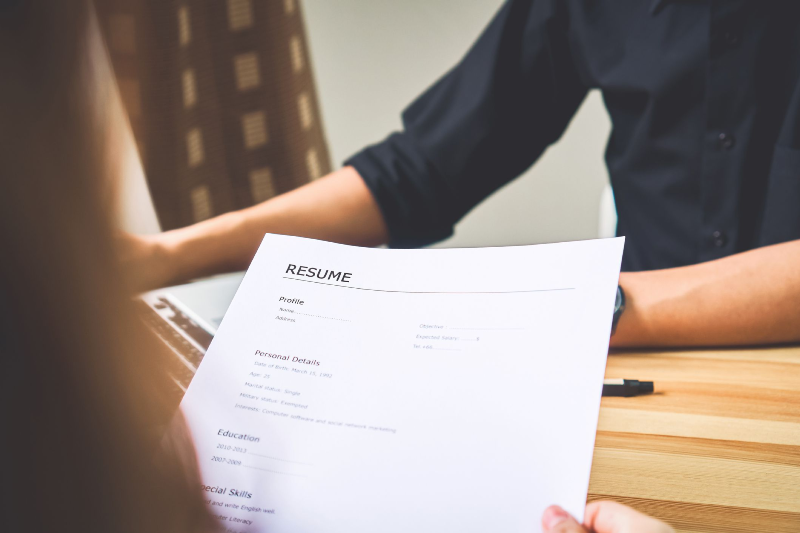Writing your own CV may seem like a trivial task, but including the right information and omitting the less important can be difficult. This is why a resume writer near me can come in handy. In the current economic climate, employers are relying on the performance and skills, experience and flexibility of the potential employee, both now and in the future.
Some useful tips:
- First of all, your CV should be written in a clear manner and include information about your qualifications relevant to the position you are applying for.
- Make sure your CV is printed on good quality white paper, in a clear font (eg Arial, font 12).
- Using sections (e.g. personal profile, career history, etc.) will help potential employers gather the information they need most.
- Gaps between each section will visually streamline the content.
- Your name, address and phone number should make up the beginning of the document.
- Use the principle of reverse chronology. Start under ‘Education’ with your most recent degree, then under ‘Work Experience’ list your qualifications, starting with your current job. If you have worked for many years, make a short list of your qualifications and a small mention of college and graduate school.
If you are just starting out in your career, list all your achievements and details of your education.
Content
You can present your professional profile in a table so that it is easier for the person reading your resume to catch the most important information about you and the skills you possess. Keep your resume short, succinct and objective. Remember that what you put on your resume will help you in the interview.
Begin with your current job, detailing your position as follows:
- Job title;
- The length of time you have been working;
- Tasks and responsibilities you perform in your position;
- Your most significant achievements;
- If possible, describe your qualifications with specific tasks, e.g. managing lower level staff, managing budgets, preparing reports for the board of directors;
- Highlight any skills you have gained in your current job that you think would be useful for the position you are applying for.
You don’t need to give a reason why you are leaving your current job. This will be one of the topics in the interview. You can include this information in your covering letter.
The interview is the most important stage in the recruitment process. Remember that the interviewer uses the information on your CV. Make sure there are no gaps in your CV. If you are just starting out as a student, use your resume to highlight any practical experience you have had, such as working as a school chairman, event organiser, sports team member, contributing to the school newspaper or volunteering.
Emphasise the individual’s abilities that match the job profile. If they are looking for someone to join a team, make sure you tell them that you are a member of a local organisation or that you play on a sports team. This will show that you work for the team.
Your main goal is to convince a potential employer that you have the skills, experience and commitment to take the job. Your CV should be no more than two sides of A4 format.
Remember also that every employer is different, and your applications should always be tailored to the job you are applying for.
A well-written CV helps to create a positive image of you.





